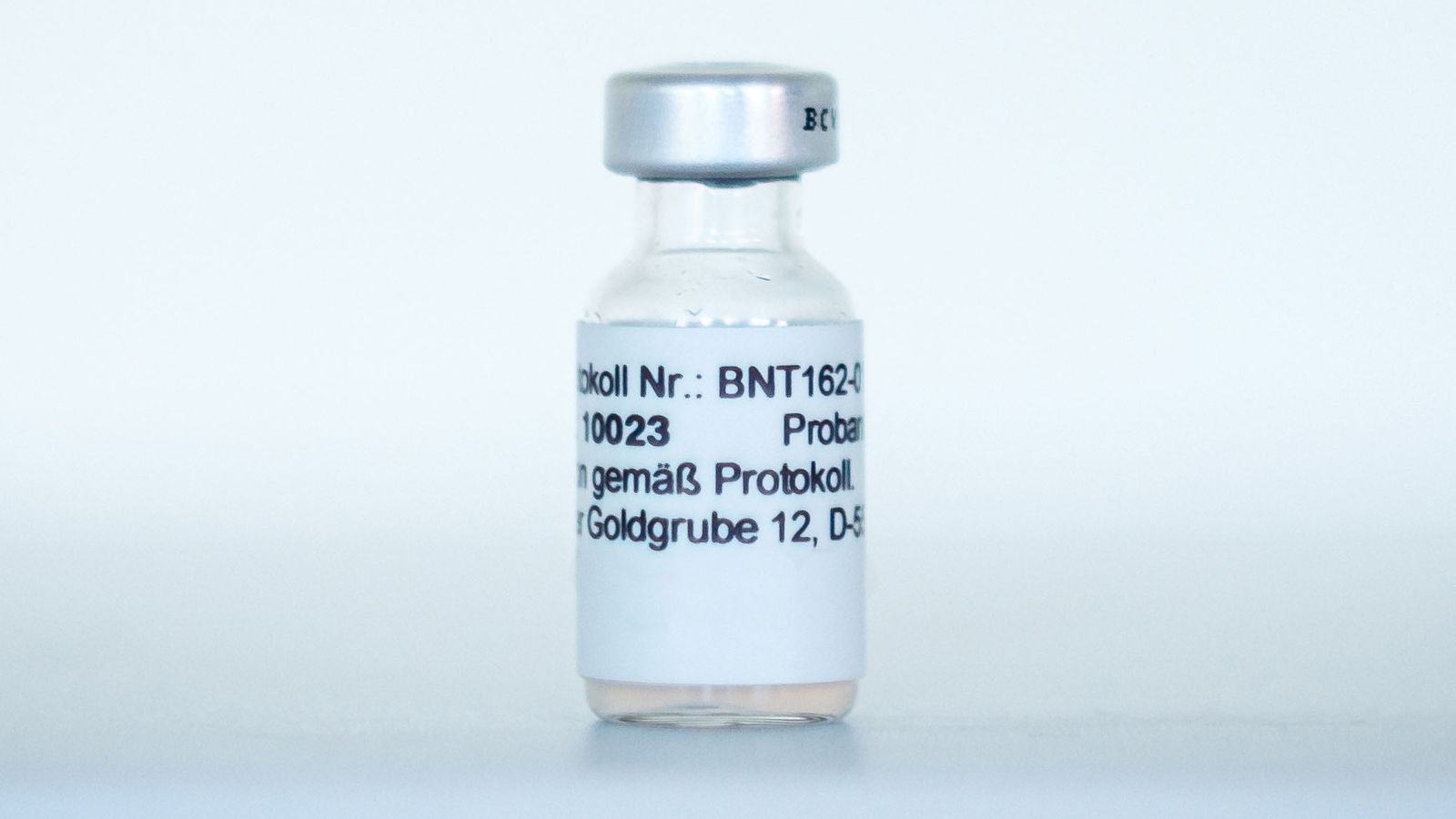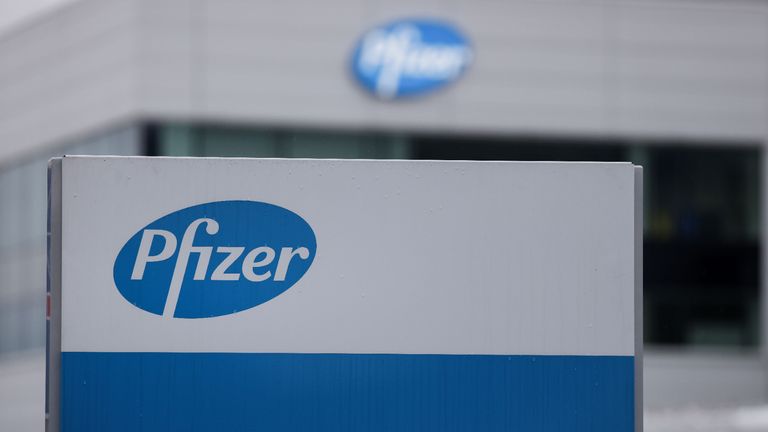COVID-19 vaccines could be airlifted to the UK next year if Brexit trade talks collapse and cause delays at Channel crossings.
The government is hoping to receive millions of doses of the Pfizer/BioNTech vaccine by the end of the year, with the first vaccinations due to begin this week.
However, the NHS doesn’t expect to vaccinate the majority of people until next year.
The Pfizer/BioNTech vaccine is produced in Belgium before being transported to the UK and distributed among hospitals.
The Road Haulage Association has warned a failure to agree an EU-UK trade deal by the end of this month, when the Brexit transition period ends, could see “significant disruption” up to 12 months.
But Foreign Office minister James Cleverly told Sky News the government had plans to “absolutely ensure” the continued supply of coronavirus vaccines, even in the event of a no-deal outcome.
He told Kay Burley: “We’ve got extensive plans in place to ensure the protection of that vaccine supply.
“As you can imagine, that is the absolute priority product and we are committed to make sure that we will get that vaccine supply to the UK.
“We have looked at use of non-commercial flights, we’ve got border arrangements in place.”
Mr Cleverly did not set out the details of the government’s border plans, but said that “everyone understands the significance of vaccines”.
He added: “These are people’s lives at stake.
“I have no doubt that the EU will help us to facilitate their travel, we’ve got our own independent transportation plans to ensure that vaccine supply.”
Asked whether he was fully confident the EU would assist the UK in supplying COVID vaccines, even if trade talks ended acrimoniously, Mr Cleverly said: “I don’t have that degree of cynicism towards the EU.”
Prime Minister Boris Johnson and European Commission President Ursula von der Leyen are due to speak on Monday evening, when they will assess whether a trade deal is still salvageable after months of deadlocked negotiations.
Without a trade deal being agreed by the end of this month, the EU and UK are likely to have to trade on World Trade Organisation rules with tariffs imposed in both directions.


